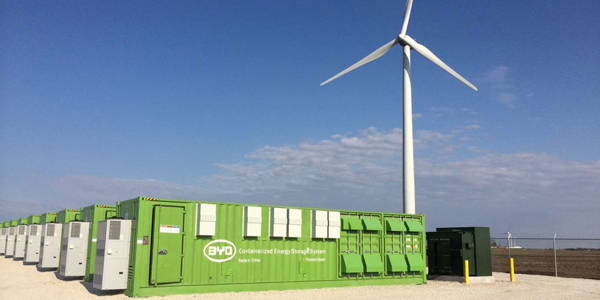Clean energy advocates are contesting MISO’s request for a three-year extension to comply with FERC’s directive that energy storage resources be allowed to fully participate in RTO markets.
MISO earlier this month asked FERC to extend its deadline to comply with Order 841 into 2025. It was the RTO’s second request for extension after having already secured an earlier postponement until June 6, 2022, later than any other RTO. (See MISO Stuns Stakeholders with 2nd Order 841 Delay.)
Speaking Tuesday at a meeting of the Markets Committee of MISO’s Board of Directors, Clean Grid Alliance’s Natalie McIntire said it was unacceptable for the RTO to delay storage resource participation — and by extension, hybrid renewable and storage resource participation — for so long. She asked the board to direct MISO to offer a storage participation framework as soon as possible.
In its petition to FERC, MISO explained that it must first get its new market platform operational before it debuts storage offers in its markets (ER19-465). The RTO said a second deferment could allow it to implement its new day-ahead market in 2024 versus an earlier target of 2025 or even mid-2026. MISO in 2017 originally estimated it would fully migrate to its new, $160 million modular market platform in 2023.
The grid operator explained that the same General Electric and RTO personnel are working on both the storage participation model and the Market System Enhancement (MSE). Todd Ramey, MISO vice president of market system enhancements, said the RTO based its deferment request on past experience with launching new market products on its old-fashioned market platform.
Although MISO decided to introduce its new 30-minute reserve product on the legacy system later this year, the development has been painstaking and needs to be carried out twice, he said.
“Essentially, you are designing and developing and deploying those products twice — once on the legacy system and once on the new market system,” Ramey said during a meeting of the Board of Directors’ Technology Committee on March 23.
Ramey estimated that each new market product introduced on both the vintage and new modular platforms delays full implementation by 18 to 24 months.
Clean Energy Orgs Network in Protests
The deferral request sparked several protests from clean energy and storage trade groups.
In a joint protest filed March 19, CGA, the American Clean Power Association, U.S. Energy Storage Association, Solar Energy Industries Association, Advanced Energy Economy and Southern Renewable Energy Association said MISO’s request “ignores the detrimental impact that a further delay … will have on [storage resources] that had reasonably planned for interconnection and operation based upon the existing MISO-requested, commission-approved operational date of June 6, 2022.”
The groups argued that MISO blindsided its stakeholders with the deferment request, ignored the harm that a delay could have on third parties and did not have good cause to put off Order 841 compliance for another three years.
“Upgrading the Market System Enhancement software before implementing the Order 841 markets might be administratively beneficial (at least in in MISO’s view), but is hardly a resolution to a ‘concrete problem,’” they wrote.
NextEra also argued that MISO presented no “convincing argument” for three extra years that would upend energy storage developments already in motion.
“Instead of being able to rely on a June 2022 date for deploying storage resources consistent with Order No. 841, developers must now wait several more years. This delay is unacceptable and should be rejected by the commission. … It is now almost two years since the commission granted MISO’s request for deferral until June 2022, and it’s only about 15 months until such date arrives,” the company said.
The Environmental Law and Policy Center, Natural Resources Defense Council, Sierra Club, Sustainable FERC Project and Union of Concerned Scientists echoed claims that MISO’s argument for deferment was weak.
“Asking MISO customers to endure an additional three years of unjust and unreasonable rates after already living under those rates for more than four years requires more than a claim of staffing burden by MISO and GE,” they said, arguing that the RTO had the resources to handle both Order 841 and the MSE. They said MISO should not conflate being short-staffed with a technological barrier.
MISO’s rules currently allow electric storage resources to operate either as a Stored Energy Resource (SER) Type I, which is limited to providing behind-the-meter regulating reserves, or SER Type II, which can function as demand response in the day-ahead market and participate in the annual capacity auction.





